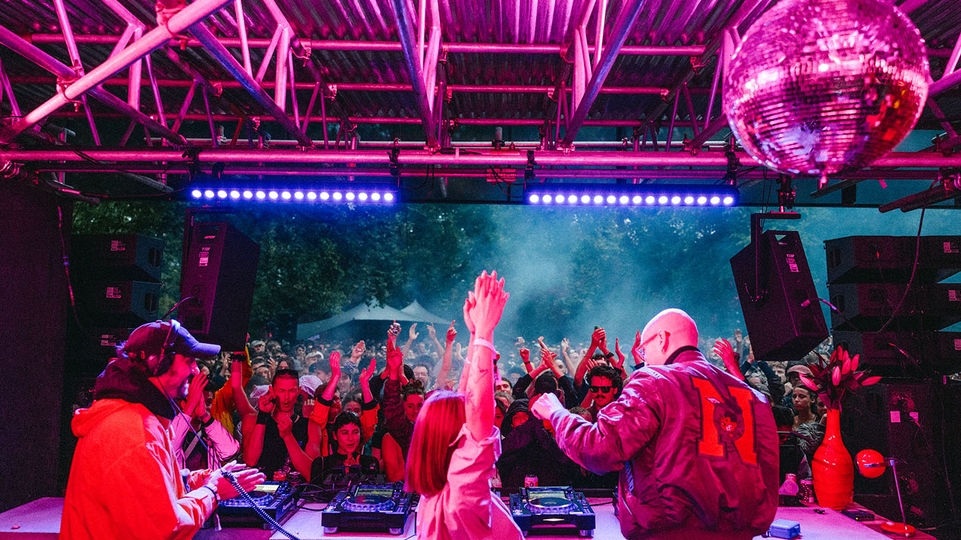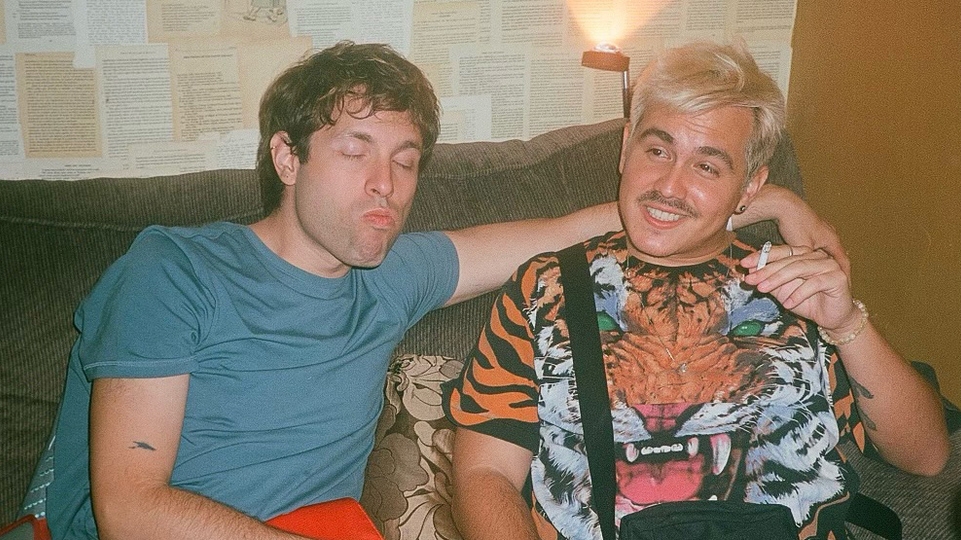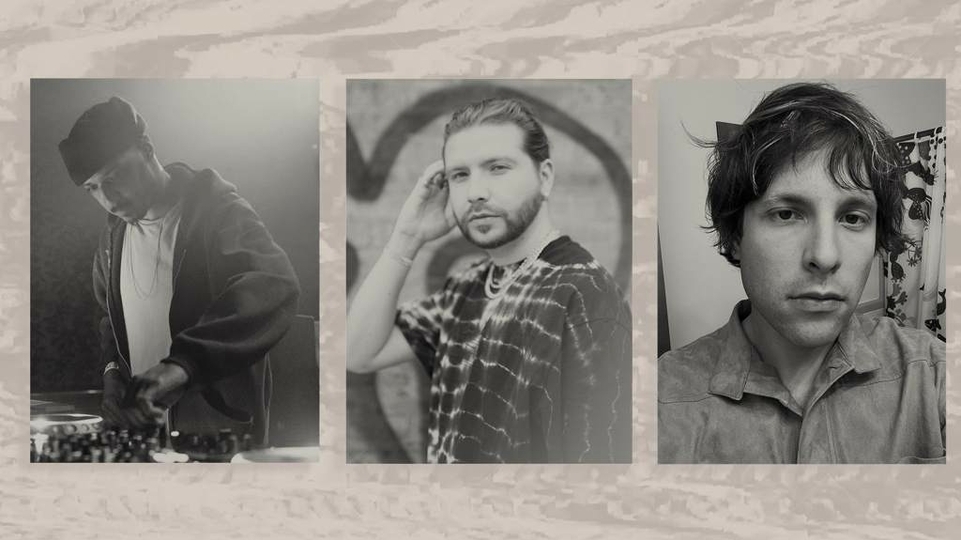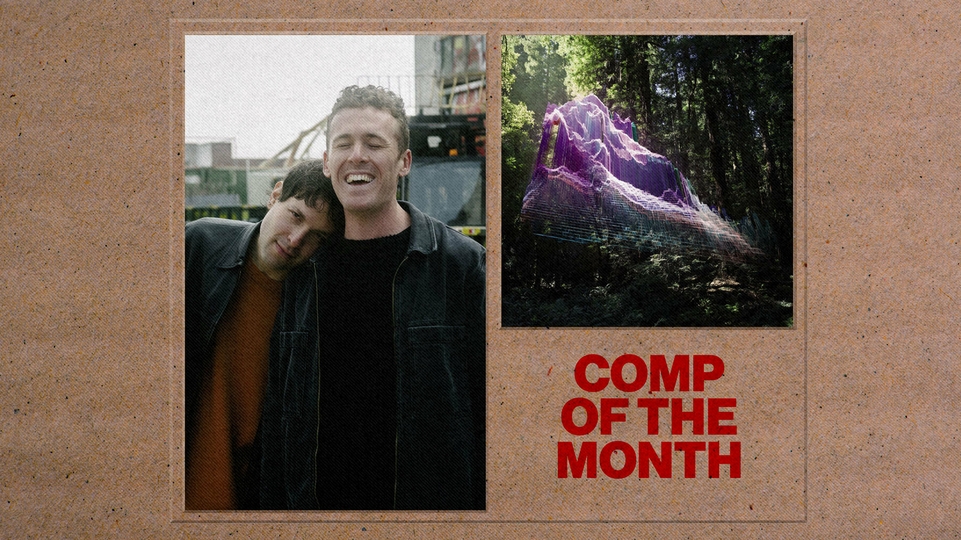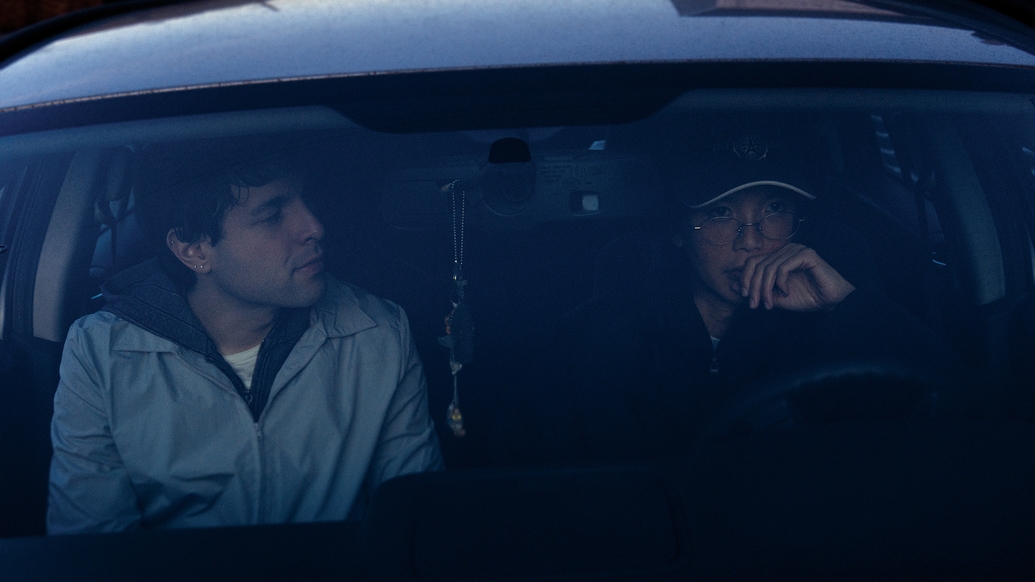
Natural wonder: how night drives inspired DJ Python and Ana Roxanne's collaborative album
DJ Python and Ana Roxanne’s new collaborative project was forged from a friendship that began during New York’s pandemic lockdown and blossomed on night drives around the city. Tony Inglis speaks to the duo about their sparkling new album ‘Natural Wonder Beauty Concept’, and discovers how deep chats, listening to music in the car, and the darker side of ambient inspired it
Ana Roxanne and Brian Piñeyro each make music that embraces slowness and defies easy classification. Roxanne has pursued this through unfurling exploratory compositions — released on influential experimental labels Leaving and Kranky — influenced by choral music, jazz, and Hindustani singing, peppered with her unmistakable and pristine vocals. Meanwhile, Piñeyro’s beats are built from parts — dembow rhythms, field recordings, ambient electronics — that coalesce into a warped club experience, initially on his debut as DJ Python, ‘Dulce Compañia’, and then again with his even more glacially paced ‘Mas Amable’. Both resist instant gratification.
When the two met during lockdown, their germinating friendship grew into a fully-fledged collaboration which, while retaining seeds of their solo work, evolved into something entirely different for both of them. The resulting project and self-titled album, ‘Natural Wonder Beauty Concept’ (an evocative phrase Roxanne asked specifically not to expand on), is a set of blissed out, street-lit pop songs where both explore using their chosen instruments in unfamiliar ways and within unusual textures; Roxanne’s voice is often unadorned and rhythmic, while Piñeyro’s harsher rhythms are smoothed down, twinkling like fresh rain on tarmac. ‘Natural Wonder Beauty Concept’ is, essentially, a hangout record, though one about a time when hanging out meant wading through existential dread.
In the space between lockdown ending and cities returning to normal functioning order, friendships existed in a place where the simple things were imbued with greater significance. For Roxanne and Piñeyro, that was getting a bite to eat, or going for a drive at night, enthusing over shared musical loves, and proselytising over new musical suggestions, high on the thrill of a pal loving a song as much as you do. When they got into the studio together, these ostensibly run-of-the- mill things became the most obvious inspiration. And so, ‘Natural Wonder Beauty Concept’ is also a driving record made for cranking on the car hi-fi, rolling down the highway in a carbon-fibre box insulated from the outside world, telling stories and secrets. The fact it’s an electronic road album makes it particularly novel. On the late album highlight ‘Driving’, Roxanne speak-sings over a dreamy soundscape and flickering drum programming: “Moving fast, and feeling slow, I like it when I’m not in control.”
While Roxanne was taking it easy on the US west coast and Piñeyro was touring east Asia, they spoke to DJ Mag about bonding, letting go of personal creative inhibitions to collaborate, and making something light and fun amid the uncertainty of lockdown.
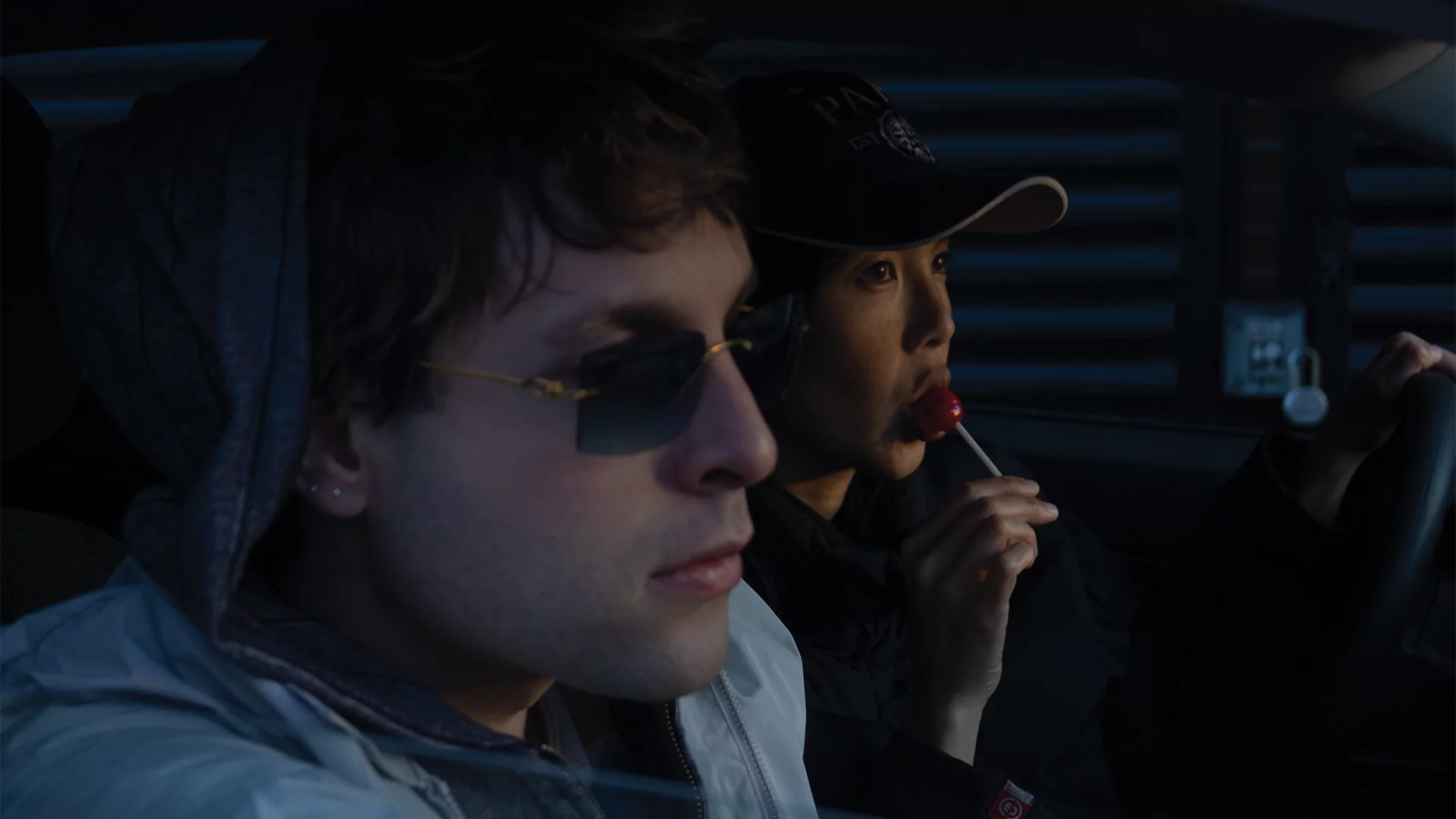
Ana, you’ve spoken about solitude being an important part of your artistic practice. What changed that made you want to enter into collaboration with another artist?
Ana Roxanne: “I had just moved to New York, and I was feeling open to new possibilities. My last album [2020’s ‘Because Of A Flower’] was really heavy for me. It was intense to be doing interviews about it and being open about that subject matter [the record explored themes of gender, identity and self-love], and so I feel like at that time, I was interested in doing something a little lighter. I met Brian and we just randomly started working on stuff just for fun, and it was really refreshing to step out of my normal musical routine. We had a really strong creative flow in the studio and just kept rolling with it.”
Were you aware of each other’s work before meeting?
DJ Python: “Yeah, I’d loved Ana’s music for some time before we started to work together. I had been admiring for a while, and we had chatted a bit before we even ever met.”
The experience of forming new friendships during lockdown felt very intense — the normal routines of beginning a relationship were kind of expedited. That all seems to have had an effect on the music you made...
Ana Roxanne: “It was a weird time in both of our lives. We would have really long talks about our love lives, life in general, and hardships we were going through, and I feel like a lot of the songs were borne out of the conversations we would have together. But there was so much energy and movement in the music that we were making, even though things felt very dead. What we were able to write felt very alive.”
DJ Python: “There was a big sense of being overwhelmed and using the music to express that and maybe release it a bit. I think we’re talking about social pressure, taboo, change, fear and courage on the record. Certain downtempo records, and albums that are cohesive without a similar emotional or sonic palette, really inspired us and was something we were aiming to accomplish with the sound.”
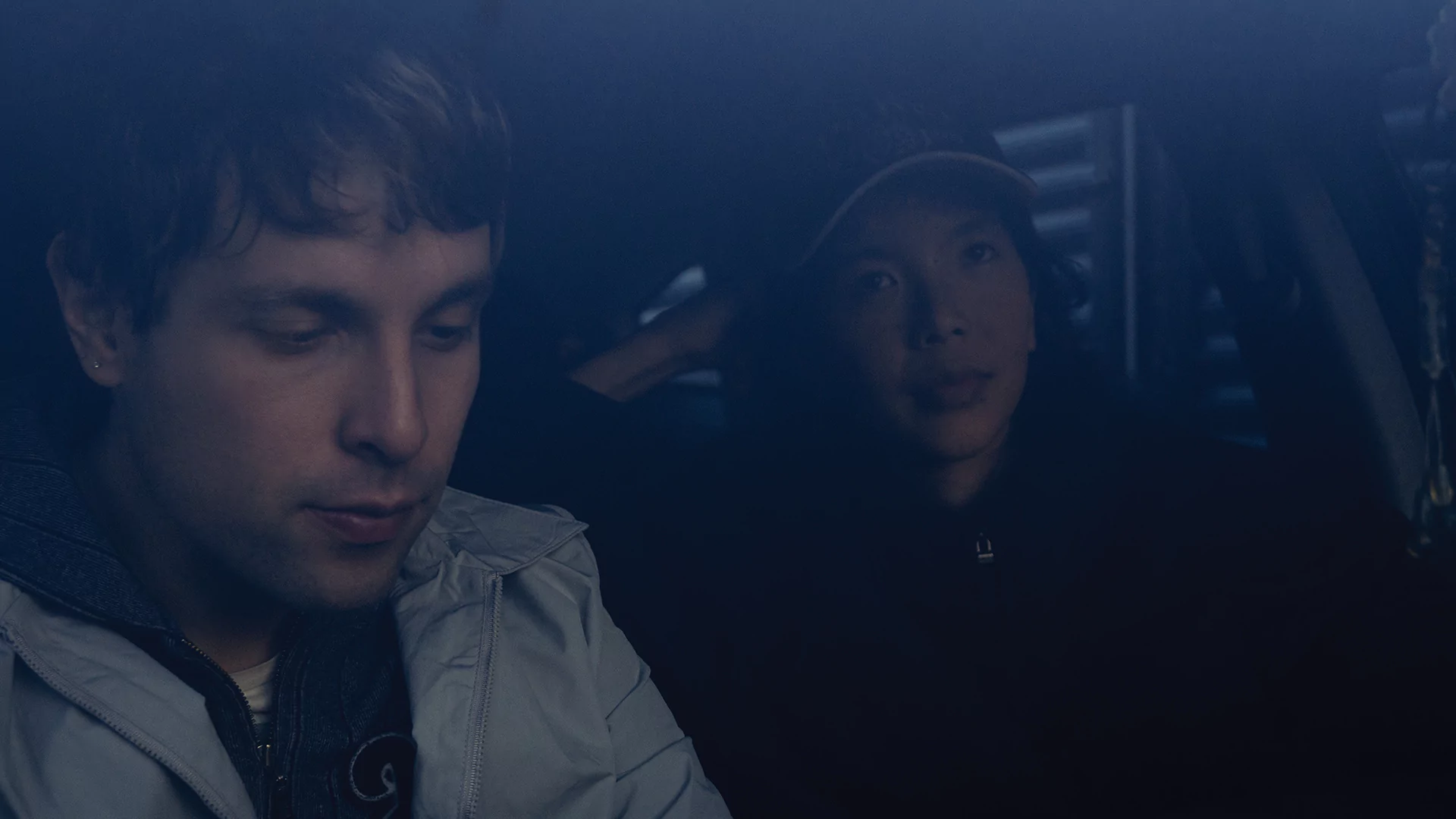
Your music shares some commonalities but, on the face of it, is very different. What surprised you about the way you worked together?
Ana Roxanne: “It was easy to riff on ideas. We were still getting to know each other, and it was a new friendship, but it felt very easy and natural to be writing stuff. We’re in very different musical circles, I guess you could say, but there’s a lot of crossover in terms of our interests — we listen to a lot of the same music. But we also introduced new music to each other through that process.
One thing that was kind of tricky, I guess, was Brian is very prolific. He writes constantly and has so much material under his belt. To me, it happened very quickly, and I’m very slow and cautious when it comes to writing. [Laughing] Sometimes it feels like I write one good song a year. It pushed me to make quicker decisions or try to create an opinion about something faster than what I’m used to.”
There’s a lot of push and pull between you on the record. You both seem to be drawing out new and different things in each other. Ana, your vocals are much more upfront on these songs, for instance...
Ana Roxanne: “Brian was really encouraging with me. He could tell I wanted to try different things, and maybe that I was scared to try them at all. I have a lot of other interests and influences, and this project gave me the freedom to try them, when I might not have felt confident enough in my solo practice. And it was just really fun to try different genres and not hide as much behind a tonne of effects.”
DJ Python: “Ana encouraged a different approach to songwriting. She helped push towards more traditional A-B-bridge songs, which I usually don’t do. It was different from my usual approach of letting things repeat and unfurl slowly. There was more immediacy in the songs.”
Brian, you do quite a bit of singing on the album. Is it something that comes easily for you? Did Ana’s singing make you approach it in a different way?
DJ Python: “I’ve always loved singing and used to sing in bands when I was a teenager. Ana helped me a lot with singing — singing at home around the apartment is much more different than for a record. Saying certain word noises during different melodic parts, singing from the chest, the string holding up your head. She made me aware of these things.”

You guys took night-time drives around New York City when you started hanging out. It’s such a simple shared experience that feels like it carries a lot of weight...
Ana Roxanne: “When I first got to New York, I didn’t have my car with me. Brian had his though, and we would go out to eat and then just drive around and do whatever we could to have fun. And through that we would listen to a lot of music in the car and talk about what we wanted to write and what was inspiring. Then when we were sort of trying to conceptualise the album, we both connected through the experience of driving at night while listening to music — it was one of our favourite things to do. And so, we were like, ‘We should write music that is specifically for driving at night, or travelling on public transit’. You know, moving through space in the darkness. That was a main inspiration for us.”
DJ Python: “We both love to drive around, in New York in particular. The car is one of the only places you can feel alone, or some sense of privacy. There’s something intimate about driving around and chatting. Sharing a road trip is one of the best ways to get to know each other. The transience fosters openness.”
This project has a wider mélange of characteristics but, Ana, the form your music has taken up until now has been in the mode of more ambient compositions. Your work has had much acclaim, and often words like “restorative” or “refreshing” have been used as positive descriptors for it. There is a kind of backlash at the moment though against ambient music, which seems to be manipulating streaming platforms and flooding playlists with anonymous meditative music that lacks intention. What do you think about that as an artist working in the ambient genre?
Ana Roxanne: “Ambient music is having a very intense moment right now, in terms of being a trend or something. There’s a lot of focus and attention on it. And there seems to be limited descriptive words in the media — there's a lot of vocabulary used over and over, so things get easily lumped together. But the music I try to write, especially ‘Because Of A Flower’, definitely felt like I was excavating very dark and difficult experiences. It's strange for me that that album could be described in a sort of light, calming, soothing, healing kind of way. When I’m performing that album and expressing it live, it’s really heavy for me. It’s a deeply cathartic experience. So yeah, that’s the kind of music and inspiration that I’m drawn to, stuff that’s a lot of pain or struggle, not just twinkly sounds that help plants grow or something.”
What’s something you love and admire about each other coming out of this experience together?
DJ Python: “I love Ana’s open, curious and honest way of navigating life.”
Ana Roxanne: “I love Brian’s sense of humour. He always cracks me up and helps me to see things in a different way. Like, if life is hard, I can always count on him to make me laugh. [Laughing] That’s all I’ll say. Brian is a really great friend, and he’s super creative and inspiring to me.”
